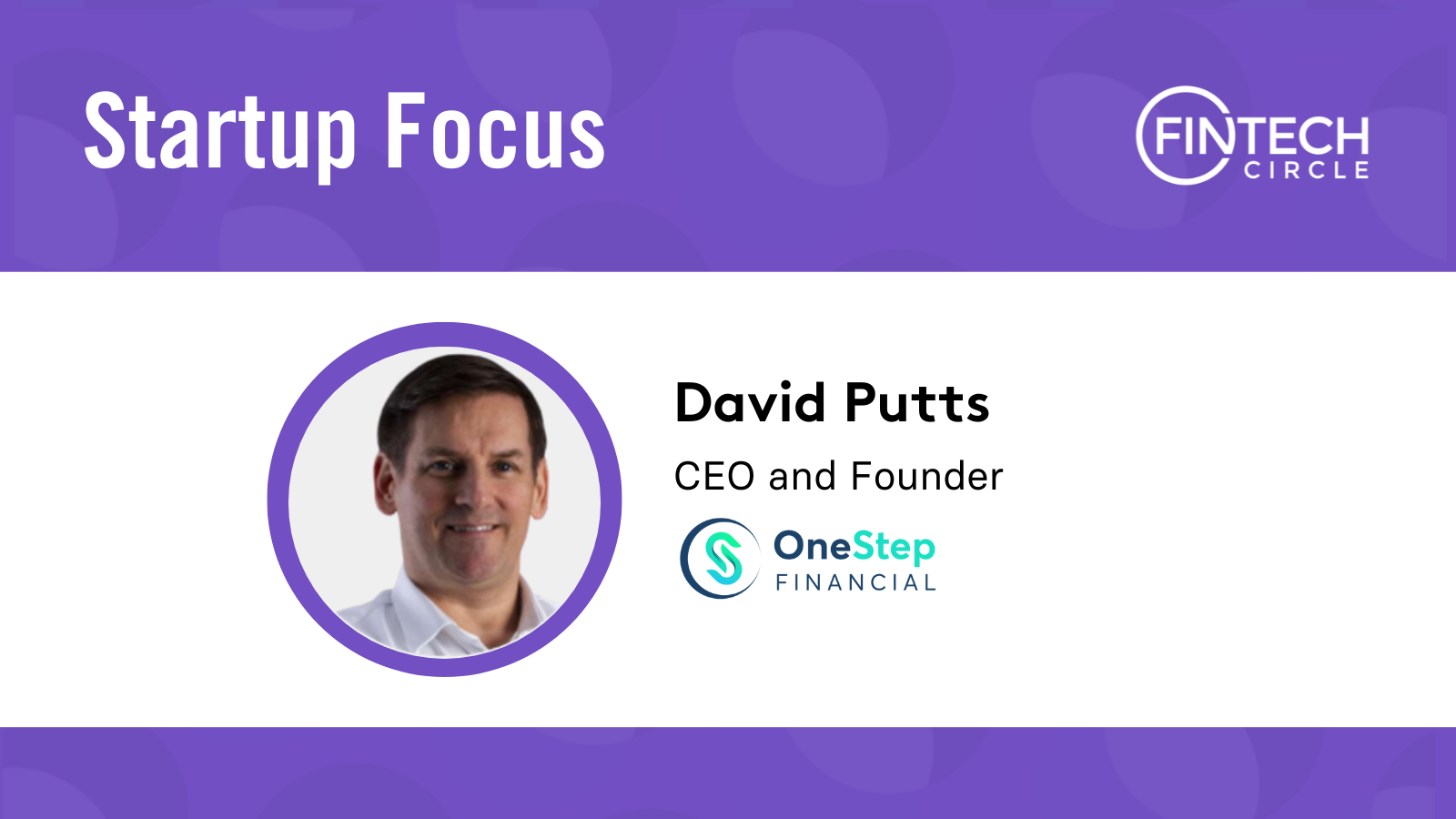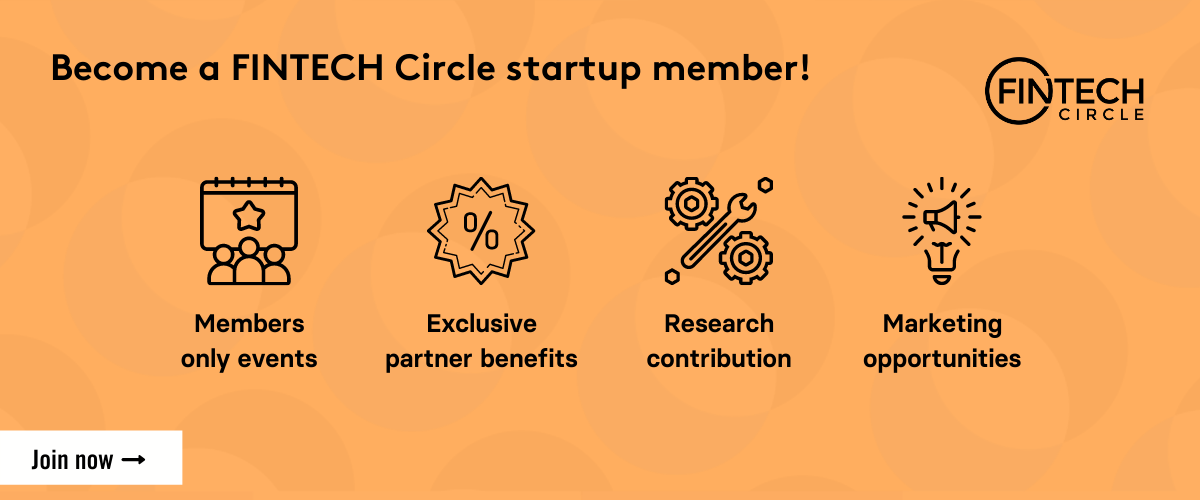Startup Focus: OneStep Financial

Date: 16 March 2023
Author: FINTECH Circle
OneStep Financial is on a mission to unleash innovation in digital money and financial technology to deliver a step-change in digital engagement and operational control.
How would you describe your business in one sentence?
OneStep Financial transforms the vast world of complex and small corporate payments – such as incentives, claims and refunds – into Engagement and Productivity events using programmable money.
Tell us why your company is a game changer for our industry?
Today’s payment systems create a $billion-dollar problem -> companies want to link incentives, claims, and refunds to “intelligence” which helps them to confirm that they are:
- Paying the correct person (the WHO), with
- The amount corresponding with individual performance rules and taxes (the WHAT); with
- Verification of completion of a task (the WHY); and
- Without the added cost of intermediaries (the HOW).
…but today’s banking systems can’t do much more than accept information on a MT103 transfer form, and then send that money with the hope that the information on the MT103 is correct.
The result is that companies trying to increase sales by paying commissions to sales agents (for example), must invest heavily in operational processes that cost 30 to 50x more than the payment itself, and they often use intermediaries.
Our solution – to use programmable money to transform corporate payments into Engagement and Productivity tools – is new. We exploit the programmability of fiat tokens to effectively deliver a micro-escrow system.
Value transfers to the correct person (the WHO), after any last-minute adjustments (the WHAT), with verification (the WHY) and without intermediaries (the HOW).
We believe that central and commercial banks are now inspired by distributed ledger technology innovation to seek use cases for the capability of such innovation. We are an early innovator with a clear problem statement and path forward. We hope this will make us one of the winners going forward.
WHAT HAS BEEN YOUR BIGGEST ACHIEVEMENT TO DATE?
Our key achievements include:
- Team: 8 co-founders (4 women) from blue-chip Banks and Fintechs, led by a 2-time challenger bank CEO
- Product Market Fit: Pilots proved 85% gross margins
- Licenses: We secured e-money license usage in both UK and Poland
- Partnerships: MasterCard, Billon Group, mBank, among others
- Networking: We joined HR-related associations to reach our target clients, and our team includes the co-founder of the Digital Pound Foundation, and membership in the Payments Association.
- Funding: All founders have invested. GBP 350k paid in as part of Founders & Family round
What has been the greatest challenge leading a start-up so far?
Achieving ‘talent density’ is always the greatest challenge, at the top of a long list of challenges. Too many start-ups (in my opinion) have a founder or two, with the rest of staff joining as employees or hired guns. This may be fine if the idea is simple.
For us, we want people with a founders’ mentality. This is incredibly difficult, especially as you also want to achieve diversity and great team chemistry.
What is the top Fintech Trend Today?
In FinTech, many technologies are transformational, but one stands out – distributed ledger technology. Look at CBDC (Central Bank Digital Currency). The concept that the form factor of the money you hold in the bank will shift from an ‘account-based’ to a ‘bearer’s based’ model is massive. Think about it where we started and where we are today:
- 1960s – The introduction of computers (and eventually, the client-server model) gave birth to 5 decades of innovation using digital money, where ‘money’ was nothing more than some ones and zeros in a database. Today, surprisingly, money is still “dumb” -> it is nothing more than some information sitting in a database behind vulnerable firewalls.
- 2020s – Inspired by crypto, we see the birth of that concept that national digital money can be “smart” if it is encrypted on a distributed ledger. Now, every dollar and cent can know where it was created, who owns it, and any rules that might need to be followed before ownership is transferred.
- 2050s – Where could we be in 30 years? If money is ‘smart’ and ownership is no longer questioned, we could see the elimination of custodial banks, removal of escrow intermediaries, and the convergence of information and data flow (inspired by NFTs). FX operations could be executed 24/7, rather than 9 to 5. And there might be dozens of new innovations exploiting this new form factor of money.
WHAT Role will banks play in a future where ‘money is smart’ (programmable)?
Incumbent banks face the challenge that – depending on the market – some 4 to 6% of the customer base migrates to FinTechs and Challenger banks each year. This has everything to do with better user experience and the fact that FinTechs and Challengers can start with modern, lower-cost technology.
Worse, Open Banking makes it easier for non-banks to provide financial services, and it could be that the biggest winners of Open Banking are not the start-ups, but massive companies like Apple who control the user experience.
In my opinion, the smart play for a big bank is to exploit their 2 advantages: they have an ecosystem at their fingertips (individuals, SMEs, and corporates), and they are the trusted ‘authenticators’ of identity. I have always thought that the 1st bank that focuses on monetizing identity will be a big winner. We will be first in line to work with them.

David Putts, CEO and Founder of OneStep Financial
You can connect with David Putts on LinkedIn
